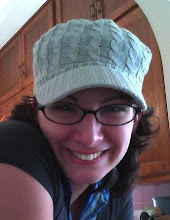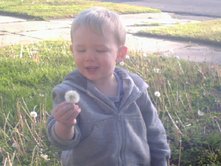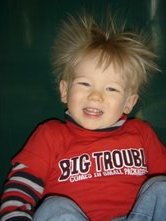
So much of what I am preaching this Sunday, November 23 2008 I learned from Rob Bell, pastor of Mars Hill Bible Church in Grand Rapids Michigan. He has no idea who little Pastor Christy, senior pastor to 50 people is... but if anyone deserves credit and thanks for influencing who I am becoming as senior pastor to those fantastic 50 people, Rob Bell is among the top.
The book quoted in this sermon is "Sex God," (I know, interesting title, but not nearly as dirty as it sounds for this book is about how the entire world yearns towards God's intention for creation and how we, the people of God, take part in the ongoing creation in becomming who we were meant to be), published by Zondervan in 2007. This book has changed my life and influenced this sermon in the most profound ways.
* * * * *
A common theme in movies and literature these days involves someone taking on the cause of the weak. We love this theme. It makes us feel good.
Take for example "The Christmas Story." We see Ralphie and his brother being chased by mean boys. They are oppressive and horrible. But then we see Ralphie go and defend his brother and himself as he takes on the bullies.
Those who oppress the boys will be avenged.
Or what about a more classic and sophisticated story like, "Le Miz?" We see someone unworthy of being avenged, ValJean, be given mercy by the Bishop.
Even those who do not deserve avenging, are given justice in this story. We love the theme of someone taking on the cause of the weak.
Or what about comedy? Like "Bruce Almighty?" Bruce sees a homeless man being beat up by some bullies and goes to help the man. And in a comedic (and quite crass scene) we see Bruce use his power to defend the weak, and care for the oppressed.
Or what about the new comedy "Drillbit Taylor?" This story has a group of boys who are beat up by a couple of mean bullies in high school. So they go together, pool their money, and hire Drillbit to be their bodygaurd. This hired friend, through a series of crazy events, defends the weak.
Those who opress the boys will be avenged. We love this theme.
Ezekiel tells us God believes in this common theme too. Those who were oppressed by kings and people in power will be avenged.
Israel will be avenged by Yahweh their God.
In the verses preceding our Old Testament reading for this week, God is angry with the leaders, kings, and people of power who were the shepherds of the people. These shepherds mistreated the people and oppressed them.
And so we find ourselves in Ezekiel Chapter 34, ready to see what God will do for the oppressed ones. God speaks passionately towards God's sheep. God tells the people of Israel, you were abused. You were mistreated. You suffered. But I will be your shepherd now.
I will be your Drillbit Taylor, your Bishop, your Ralphie, your Bruce Almighty.
I will cast out the bullies from your life. Those who are the weakest will be given great mercy.
* * * * *
Think for a moment. Take a second to reflect back on your childhood. Can you remember a time when you were picked on? How old were you? How did you feel when someone was hurting you? Beating you up maybe?
Imagine Ezekiel came to you and said something along the lines of: God says you will not be oppressed anymore. You will get a new shepherd, one who can get it right this time. The people in power have messed up. They did not care for you, their sheep. But God will bring a shepherd who will "search for my sheep," "take care of my sheep," "save them," "bring them to their own land," "feed my flock," "search for the lost," "put bandages on those that were hurt, and make the weak strong." God will BE your Shepherd.
This is what it was like for the people of Israel. They had been oppressed by their kings (those who were supposed to be their shepherd) and God says, I will be your Shepherd. I will love you like you should be loved.
* * * * *
And now, as we rapidly approach the Christmas season, we remember who our Great Shepherd is, the one who loved most fully. God gave us a Shepherd, God himself, to come to us... and save us in our oppression.
This Shepherd was intentional with his sheep.
This Shepherd became vulnerable and allowed himself to bleed and die.
This Shepherd's very life (as Rob Bell says in "Sex God") was "about the stripping away of power and control. Jesus always chooses the path of love, not power" (100).
Jesus is the one who chooes... "inclusion, not exclusion" (unlike the Kings and Shepherds did before him).
And this Jesus chooses "connection and solidarity rather than rank and hierarchy" (unlike the Kings and Shepherds did before him).
And this Jesus chooses "touch rather than distance" (unlike the Kings and Shepherds did before him).
And this Jesus chooses "compassion rather than control" (unlike the Kings and Shepherds did before him).
And this Jesus, this Jesus, chooses to come on a "donkey, not a horse" (unlike the Kings and Shepherds certainly did before him).
And this Jesus, chooses to come "weeping and broken, not proud and triumphant" (101).
And this Jesus uses his "vulnerablity for a purpose" because his weakness is "actually a strength" (102).
Jesus acts lovingly, (unlike the Kings and Shepherds did before him).
God becomes our Shepherd. God comes and avenges those who are oppressed and gathers them up in God's great big arms and says, "I will take care of my sheep. I will be the Shepherd."
* * * * *
Which brings me to the next passage, our Gospel passage for today.
I have not seen Jesus' body physically walking around lately. I have not seen Jesus, the Shepherd grab up the oppressed in his arms, right before me. I have not seen the physical Christ stand before me.
Or have I?
Is the Church of Jesus Christ not called the BODY OF CHRIST?
We are to be the hands, the feet, the mouths filled with kind words, the warm eyes, the body of Christ.
WE are to be the ones who, alongside Jesus, give up power. We are to be the ones who refuse to exclude. We are to be the ones who deny rank and hierarchy. We are to be the ones who do not stand at a distance and we are the ones who give up control. We are to be the ones who abdicate pride and riding triumphantly.
Because, alongside Christ, we are the ones who focus on inclusion the ones who care about connection and solidarity. The ones who are about touch. The ones who live by compassion. The ones who come weeping and broken.
Our Gospel passage today comes from Matthew chapter 25. This is the passage where Jesus separates the sheep from the goats and the sheep say, "Lord, when did we see you hungry and feed you... or thirsty and give you something to drink? When did we see you unclothed and clothe you or sick and visit you?" And Jesus says, whatever you did to the least of these, you did to me.
Whatever you did for my oppressed sheep, you did FOR me. You did TO me.
Whatever you did for my hurting sheep was for me.
Whatever you did for the boys getting beat up and terrorized, you did for me.
Whatever you did for ValJean, you did for me.
Whatever you did for the homeless man, you did for me.
Whatever you did for your brother, youd did for me.
AND HERE'S THE REAL KICKER. It's not with returned power and prestige we vindicate and avenge the weak. It's not always with a greater rank that we care for the feeble. It's not with more control than the other person (or group) that we include instead of exclude. It's not with pride and triumph that we avenge the oppressed.
We act like Jesus.
We spend our lives "stripping away power and control." We choose the "path of love, not power" just like we saw Jesus do.
Because this Jesus teaches us to turn the other cheek, to love our enemies, and pray for those who persecute us. And (as Rob Bell says in "Sex God"), "it takes quite a spine to turn the other cheek. It takes phenomenal fortitude to love your enemy. It takes firm resolve to pray for those who persecute you" (103).
It takes a truly strong person, to be vulnerable, like Christ. For a purpose.
To have weakness on behalf of the oppressed, "that is actually a strength."
SEE THE TRUTH IS, everyone can DO charity. Everyone can throw money at a poorer person than them. Everyone can drop some change in a bucket in front of the store. Everyone can give to the World Evangelism Fund. Everyone can find ways to care for the weak. Everyone can DO charity.
BUT ONLY A PERSON TRANSFORMED BY THE LIFE OF CHRIST, CAN GIVE UP THEIR OWN LOVE OF STRENGTH, POWER, AND CONTROL... in order that we might embrace our own weakness, our own vulnerability, our own nakedness. To walk alongside of, to suffer with, others who are as weak, vulnerable, and naked as we are. They could be me, we could be them. And thus we give up our love of strength, power, and control to suffer alongside of them.
Everyone can do charity this Christmas. But I'm challenging you to do so much more. I'm challenging you to give up your LOVE of strength, power, and control. Give up your NEED for strength, power and control. Give up what protects you from other people who suffer. Give up what shields you from feeling your own vulnerability and weakness when you "DO" charity.
And I know it is not easy. But it's SO exciting! ... That little, weak, vulnerable, insignificant people like us get to take part in what God is doing to redeem the world... through the backwards power of inclusion, connection, touch, weeping, and brokenness.




No comments:
Post a Comment